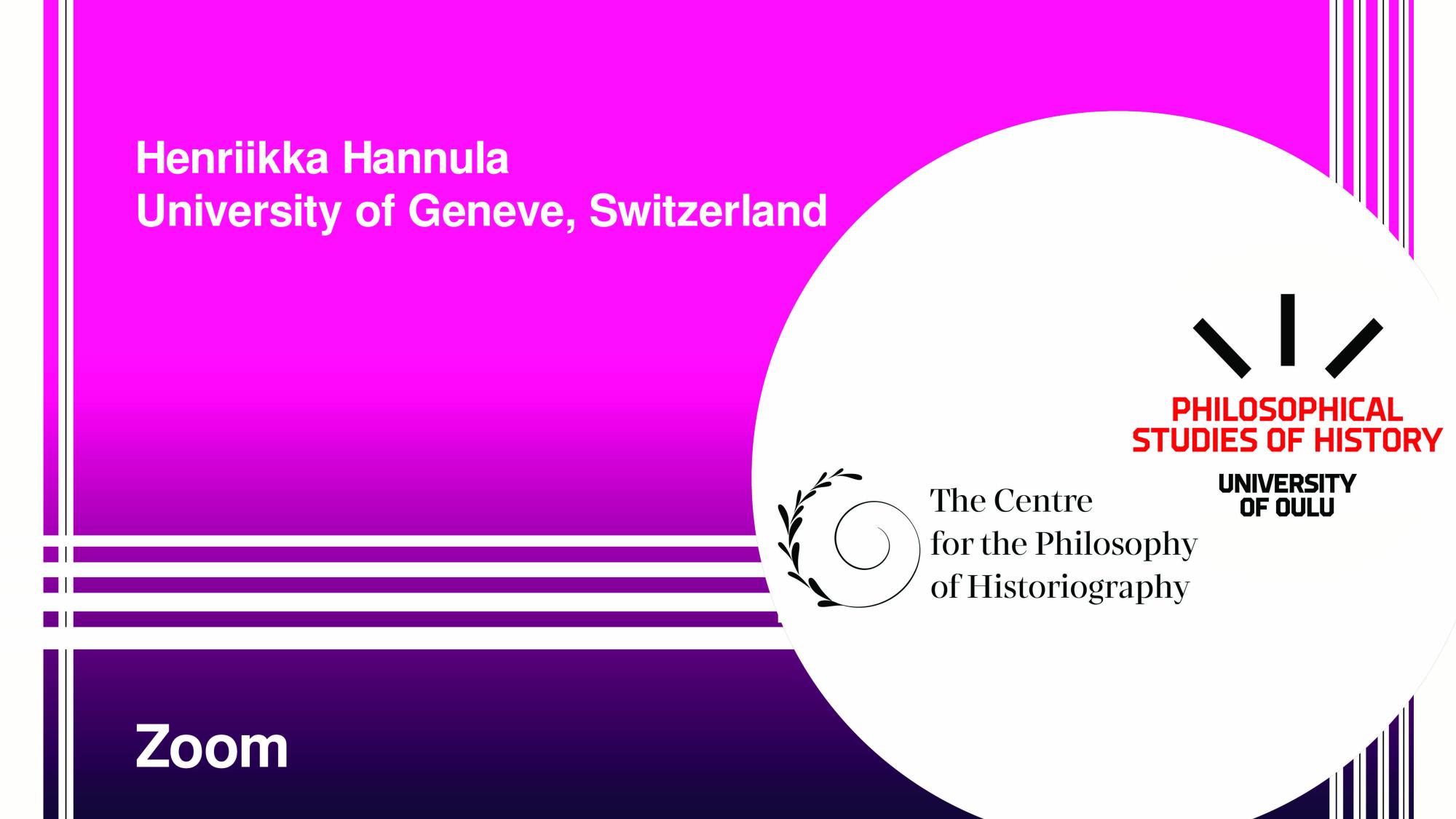Existential Historicism: The Rise and Fall of a Sense-Making Framework
30.10.2025, 16:00 (CET) / 17:00 (EET)
Zoom
passcode: 426310

Event information
Time
Thu 30.10.2025 17:00 - 19:00
Venue location
Zoom
Location
Abstract
In this paper, I introduce a concept of existential historicism. I argue that the concept grasps a distinct attitude toward history and ideals around historiography in the mid- to late 19th-century Germany. As such, existential historicism informed theoretical and philosophical discourses on history, functioning as a sense-making framework for many professional historians. It combined the ideals of modern academic historiography with the older notion of history as magistra vitae, mediating between spiritually or morally coded forms of sense-making and the epistemological ideals of modern historical scholarship.
Existential historicism was not a term used by 19th-century thinkers. Rather, I employ it to designate a recognizable intellectual current. I, therefore, use the term as an analyst’s category. I hope to convince the reader of the usefulness of this category by presenting a (hopefully compelling and convincing) narrative of the development of these specific thought patterns in the late 19th and early 20th centuries.
Central to existential historicism were the ideas of historical imagination and the aesthetics of history, which fostered a mode of historical contemplation. For 19th-century historicists, this contemplative engagement with history offered a way to rise above the banalities and tragedies of everyday life. Apart from personal consolation, historical contemplation provided a way to mediate the widespread cultural pessimism of the period and create a distinct disciplinary identity that effectively balanced between artistic and scientific ideals.
In the final part of the paper, I examine the early 20th-century crisis of historicism. I argue that this crisis did not reflect a failure of historicism as an epistemological or ontological proposition, but rather the collapse of its capacity to provide a compelling, existentially viable vision for life. The relativism and seemingly tolerant embrace of diversity inherent in 19th-century historicism did not provide a sufficiently inspiring, or existentially viable, vision for life in life after Germany’s defeat in the First World War.